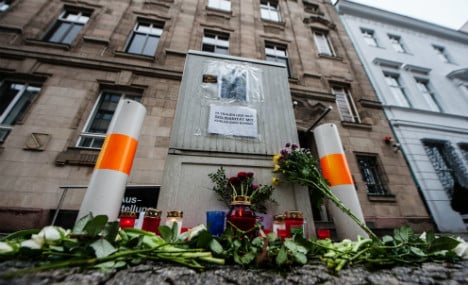The body of the 20-year-old man, identified in the media as Khaled Idris Bahray, was found early Tuesday near his refugee accommodation in the eastern city of Dresden.
The city has been in the spotlight for weekly marches since October called by the populist PEGIDA movement against what it terms the "Islamisation" of Europe and "criminal asylum seekers". Its latest rally Monday drew a record 25,000 people.
Police had initially said there was no reason to suspect foul play in the man's death, but after a postmortem examination corrected this to say he had died from multiple stab wounds to the neck and chest.
Greens party lawmaker Volker Beck, the party's interior political spokesman, tweeted that he had lodged the complaint against persons unknown for possible obstruction of justice in office, while warning against speculation.
He told the website of the Dresden Morgenpost regional newspaper, Mopo24, that any "investigation slip-ups" must be "wholeheartedly" cleared up, complaining that it took 30 hours after the crime to secure evidence at the site.
"I have no understanding for the negligent approach of the investigation authorities," the report quoted him as saying.
The victim had lived in Dresden since September and was staying in accommodation he shared with seven other asylum-seekers from Eritrea.




 Please whitelist us to continue reading.
Please whitelist us to continue reading.